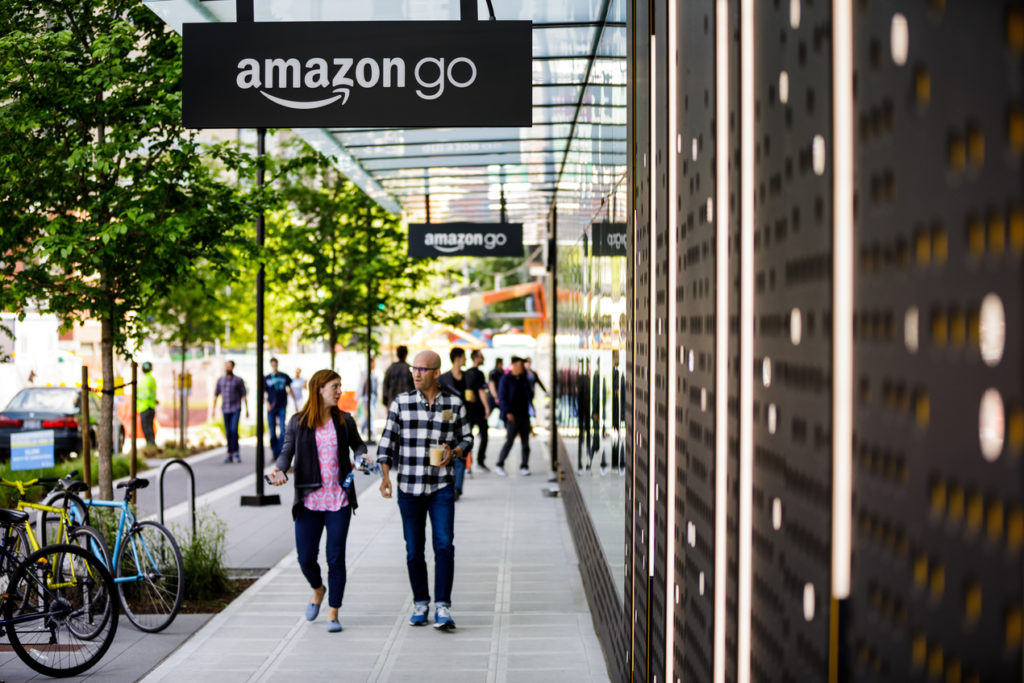
DETROIT, MI—The search is over. Amazon selected New York City and Northern Virginia as the sites to put its twin pair of “second headquarters” locations in coming years, concluding one of the biggest economic-development derbies in global history.
The East Coast bastions beat out hundreds of other hopeful cities throughout the Heartland, the South and other parts of the country in large part because Amazon executives believed metro New York and metro Washington, D.C. promised the best pools of available and potential tech workers. “These two locations will allow us to attract world-class talent that will help us to continue inventing for customers for years to come,” CEO Jeff Bezos said in a statement.
The decision is a case of the tech-rich getting richer and the entire swath of America between the coasts continuing to have to bootstrap its way to digital relevance as the economy shifts inexorably to a foundation of bits and bytes.
Seattle-based Amazon decided to split a single “HQ2” worth about 50,000 direct jobs into two “second headquarters” projects. Each site will get about 25,000 new full-time jobs with an average wage of more than $150,000, about $2.5 billion in Amazon investments, and incremental tax revenues in the billions of dollars in exchange for performance-based direct incentives of $1.5 billion in Gotham and $574 million from northern Virginia.
“Amazon’s choice highlights the competitive advantage held by metropolitan areas that have highly skilled, technology-focused workforces,” said Minoli Ratnatunga, director of regional economics research for the Milken Institute’s Center for Regional Economics and California Center, in Santa Monica, California. “Regions that invest in their human capital are well placed to attract or develop their own big opportunities.”
In that context, Flyover Country did get a sop: Amazon decided to place what it calls a new Operations Center of Excellence in Nashville, which calls for about 5,000 high-paying jobs in customer fulfillment, transportation, supply chain and similar activities.
But Nashville’s gain, as nice as it might be for the city, can be understood at least in part as Amazon’s concession to the geographic reality that, as one of the nation’s biggest shippers, it only makes sense to put its logistics nexus in the middle of America.
Meantime, Nashville’s prize is worth only about one-tenth the job count that Amazon originally promised to award to one city in an HQ2 process that was going to result in plunking down a huge new operation and 50,000 jobs all in a single new place.
Nashville, Chicago, Detroit, Indianapolis, Columbus, Dallas and dozens and dozens of other cities between the coasts failed to persuade Amazon that they could provide the transportation networks, higher-ed infrastructure and, most important, enough digital-tech talent to support Amazon’s ambitions.
So while Amazon’s siting decisions may make sense practically and financially for the company, they may make the rest of the country perceive that failure to land Amazon means a chink in the validation of their growing credentials as tech havens.
“It would have been nice to see one smaller MSA in Flyover Country selected for the HQ2 project,” said Larry Gigerich, managing director of Ginovus, an economic-development consulting firm in Fishers, Indiana. “D.C. was a heavy favorite from the start, and New York was on every short list from the start. Those two places are ones that no one from Amazon gets fired for picking.”
Also, it’s one thing for Flyover Country to have been found almost completely wanting by Amazon’s siting formula. It’s another that, as some suspect, the fix was in from the start, and Amazon simply reaped bargaining power with the eventual winners—and tons of valuable information on important markets across the United States—in its year-long efforts to get every city to come to the table with its best financial incentives.

Chief Executive Group exists to improve the performance of U.S. CEOs, senior executives and public-company directors, helping you grow your companies, build your communities and strengthen society. Learn more at chiefexecutivegroup.com.
0

1:00 - 5:00 pm
Over 70% of Executives Surveyed Agree: Many Strategic Planning Efforts Lack Systematic Approach Tips for Enhancing Your Strategic Planning Process
Executives expressed frustration with their current strategic planning process. Issues include:
Steve Rutan and Denise Harrison have put together an afternoon workshop that will provide the tools you need to address these concerns. They have worked with hundreds of executives to develop a systematic approach that will enable your team to make better decisions during strategic planning. Steve and Denise will walk you through exercises for prioritizing your lists and steps that will reset and reinvigorate your process. This will be a hands-on workshop that will enable you to think about your business as you use the tools that are being presented. If you are ready for a Strategic Planning tune-up, select this workshop in your registration form. The additional fee of $695 will be added to your total.

2:00 - 5:00 pm
Female leaders face the same issues all leaders do, but they often face additional challenges too. In this peer session, we will facilitate a discussion of best practices and how to overcome common barriers to help women leaders be more effective within and outside their organizations.
Limited space available.

10:30 - 5:00 pm
General’s Retreat at Hermitage Golf Course
Sponsored by UBS
General’s Retreat, built in 1986 with architect Gary Roger Baird, has been voted the “Best Golf Course in Nashville” and is a “must play” when visiting the Nashville, Tennessee area. With the beautiful setting along the Cumberland River, golfers of all capabilities will thoroughly enjoy the golf, scenery and hospitality.
The golf outing fee includes transportation to and from the hotel, greens/cart fees, use of practice facilities, and boxed lunch. The bus will leave the hotel at 10:30 am for a noon shotgun start and return to the hotel after the cocktail reception following the completion of the round.